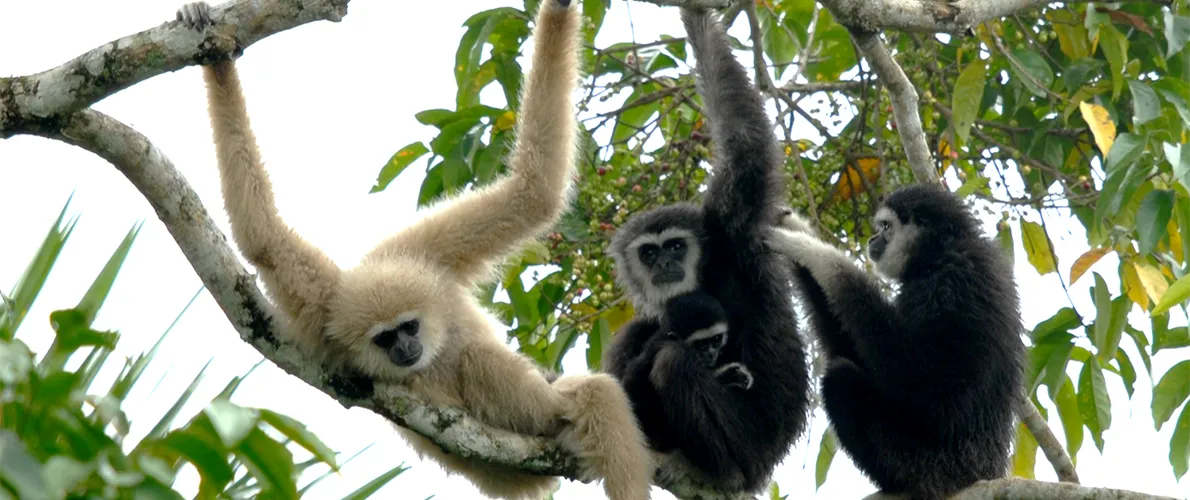Main Content
Doctor of Philosophy in Anthropology

Our Doctoral program offers a comprehensive academic experience, extensive research opportunities, and abundant resources within a supportive community. Renowned for producing professionals poised for success in their careers, we emphasize advanced coursework and original research, with a strong focus on your dissertation.
Our program is designed to cultivate expertise in specialized areas of anthropology while providing a thorough understanding of the discipline's major sub-fields. With a flexible curriculum tailored to diverse interests and goals, we prepare students to excel in their chosen career paths.
Please note: We are not currently accepting applications in Sociocultural or Linguistic Anthropology.
Admissions
Applicants for the PhD program must hold a master's degree equivalent and apply directly to Anthropology. Accelerated entry may be offered to MA-level students judged ready for doctoral research after two terms. Transitioning students from other master's programs meet with the Graduate Studies Committee and an advisor before Fall semester classes to discuss sub-discipline competencies. Deficiencies are addressed with required courses based on SIU Carbondale's MA distribution requirements.
Degree Requirements
As part of our Ph.D. program, you will form a faculty committee with at least five members, including three from Anthropology and one from outside the program. Requirements include tailored coursework, nine 500-level anthropology credits beyond specified core courses, and two research tools, such as foreign languages, statistics, or GIS, chosen with your committee. Students complete a comprehensive written and oral exam, gain teaching experience, and develop a dissertation with an approved prospectus under their committee’s guidance.
Candidacy and Dissertation
After fulfilling requirements 1-3 and gaining approval for a dissertation proposal, students enter formal PhD candidacy. Anthropology recommends them to the Graduate School for a five-year candidacy period. Candidates complete 24 credits under ANTH 600 and defend their dissertation orally, following Graduate School guidelines. Upon successful defense and final revisions, the dissertation is submitted electronically to the Graduate School, with a printed copy provided to Anthropology.
Assistantships
Graduate Assistantships (GAs) are available through Anthropology, faculty grants, and the Center for Archaeological Investigations (CAI), with collaboration between CAI and Anthropology to identify eligible students. These assistantships cover teaching, administrative, and research roles. GAs typically span academic semesters with a workload of 20 hours per week. Selection prioritizes students based on academic performance, progress, and relevant skills. Federal Work-Study GAs are awarded based on financial need, and international students must meet additional eligibility criteria. To apply, students must complete the financial aid form included in the application materials.
Fellowships
Graduate Fellowships and Scholarships are awarded competitively each spring by the Graduate School of the University. Not all fellowship competitions are open to all students. Students can apply directly to the Graduate School for Prompt and Graduate Dean's fellowships and scholarships. For all others, the Anthropology Graduate Studies Committee reviews all students' records and identifies those students eligible for further consideration. The potential nominees and Anthropology assemble complete application files, and the Graduate Studies Committee ranks the students for final nomination in each competition.
Contact Information
David Sutton,
Program Director
Faner Hall 3537
1000 Faner Dr.
Carbondale, IL 62901
618-453-5017
dsutton@siu.edu
Careers
The most common career path for advanced graduates in Anthropology is academia. Professional anthropologists in colleges and universities find avenues to continue and expand their research. In most cases, this includes teaching responsibilities. Non-academic career paths lie in museum curation, the business world, governmental agencies (such as the National Park Service, National Forest Service), and community organizations.



